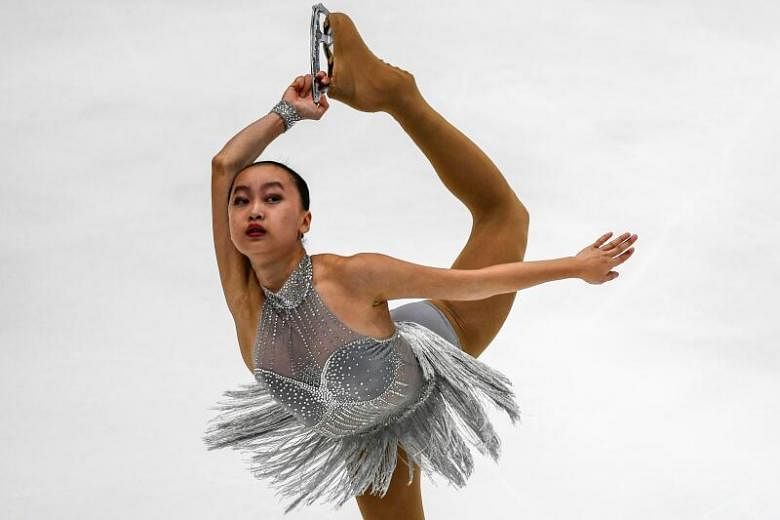The issue of athlete abuse has been in the spotlight in recent months, with the Netflix documentary Athlete A on USA Gymnastics doctor Larry Nassar's sexual assault of young athletes prompting many to come forward to share their own experiences of mental and physical ill treatment.
Among them were former Singaporean figure skater Yu Shuran and ex-national gymnast Eileen Chai, who spoke out about their experiences while training in China.
Experts from Singapore, Japan and India weighed in on the topic yesterday in the first Safe Sport in Asia webinar organised by Sport Singapore (SportSG).
Tatsuo Oka, deputy secretary general and head of the violence consultation service at the Japan Sport Association, said that from November 2014 to March this year, it was consulted on 618 cases concerning violent behaviour in sport. These included the use of abusive language, power harassment and violence.
Most of the cases involved school children (43.5 per cent), and those who consulted them were mainly their guardians (58.8 per cent).
Referring to the data, Oka highlighted the importance of educating parents about safe sport, particularly as most of the cases involved minors.
"It's hard for kids to express themselves in terms of feeling and vocabulary. And they normally think others are right so they just accept what adults say. They can't understand what's right or wrong," he said.
"Many adults think corporal punishment is needed, so we need to educate people that that's what was normal in the past."
Masamitsu Ito, a sports coaching professor at Nippon Sport Science University (NSSU) agreed that a cultural shift is needed for sport to become safer for athletes.
He said: "This is not just a sport problem but a social problem as well. It's culture so we need to educate everybody. If we can change sport, maybe sport can be the trigger to change society."
Acknowledging that elders, teachers and coaches are typically accorded a high degree of respect in Asian society, Azhar Yusof, SportSG's head of CoachSG, said that it is important to have others understand that the "power relationship" could become "high risk in relation to safe sport".
"So it's time for us to reflect and rethink our own coaching practices and ask ourselves whether things that were deemed acceptable last time are still acceptable now."
To promote safe sport and protect athletes, Japan has been focusing on coach education and development through the NSSU Coach Developer Academy, which was started in 2014.
On corporal punishment in sport, Prof Ito, who is also the academy's deputy director, noted that there are coaches who "truly believe what they're doing is right because it was what they experienced in the past".
"So we want to reach out to coaches who haven't experienced learner-centred coaching last time and support them in acquiring new skill sets."
Indian Olympic Association expert Pranav Maggu said it has measures to help prevent abuse, as well as avenues for athletes to address their grievances. These include educating children on how to identify good touch and bad touch, ensuring that female officials are assigned to accompany female athletes and teams, and appointing at least one safe sport liaison officer per national federation.
In Singapore, the Safe Sport Commission was launched last year to look into preventive measures to safeguard athletes, coaches and other participants. Nearly 100 safeguarding officers have been trained and of the 64 national sports associations, fewer than 10 have yet to appoint a safeguarding officer.


